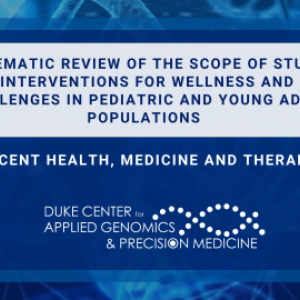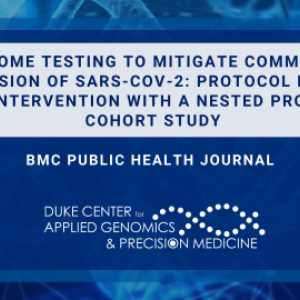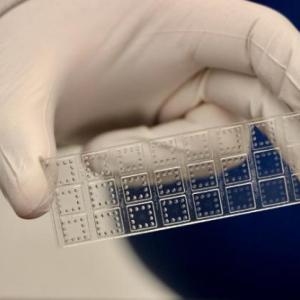The Duke Precision Medicine Program aims to bring proven precision medicine technologies from the basic science portfolio to the clinical settings through both research and clinical programs. Precision medicine technologies are broad-based and include specific tools such as wearables or our family history risk assessment platform, as well as predictive models that incorporate multiple modalities using state of the art scientific principles like machine learning. Housed in the Division of General Internal Medicine in the Duke Department of Medicine, our team is particularly interested in incorporating 'omic technologies, such as genomics, transcriptomics, and epigenomics, into clinical environments to enhance patient care and has broad based expertise in health services research, implementation science, and complex data.
"Precision Medicine is the future of medicine and we are excited to be on the forefront of research, advancements, and discoveries." - Lori Orlando, Director of the Duke Precision Medicine Program

Lori Orlando, MD, MHS, MMCI
Director of the Duke Precision Medicine Program
Learn more about our work
The pace of precision medicine is rapidly accelerating and it’s potential to improve individual and population health is as well. However, precision medicine’s unique complexities make it difficult to incorporate into our existing healthcare infrastructure and processes.
Our goal is to identify and address these challenges so that patients and providers have the data, tools, and resources they need to optimize health.
Research
Our team is dedicated to advancing research in precision medicine through ongoing studies through trial networks housed at Duke University.
- GUARDD-US: Genetic testing to understand renal disease disparities across the US through the IGNITE Pragmatic Clinical Trials Network
Health Care
Our team has developed and implemented various initiatives, programs, and tools, to bring precision medicine into the hands of providers, including both clinicians and pharmacists.
- PHASER: Pharmacogenomics Testing for Veterans program (PHASER), brings pharmacogenomic testing to Veterans across the country receiving care at a VA. Led by Founding Director, Deepak Voora, PHASER uses this type of testing to optimize prescriptions using genetic data from patients to reduce adverse side effects and improve medication outcomes.
- MeTree: Developed by the Duke Precision Medicine Program, MeTree is a web-based, patient-facing risk assessment tool that collects personal health information and family health history.
Education & Training
Educating the next generation of researchers and health care providers in genomics and precision medicine is part of the fabric of our values. We are committed to providing extraordinary mentorship and educational experiences to future genomics researchers, educators, and clinicians.
News & Recognition
See what's happening at the Duke Precision Medicine Program:









